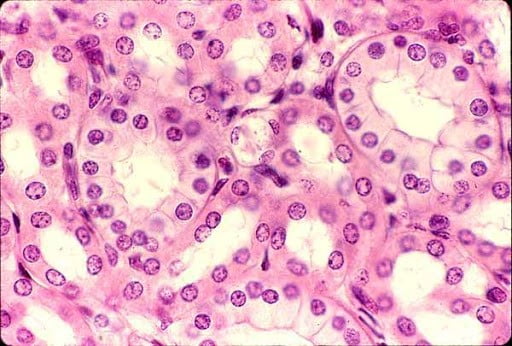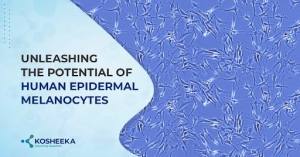Kidney Epithelial Primary Cells: The urinary system plays a crucial role in the maintenance of homeostasis by filtering blood to remove the waste, fluid regulation, electrolyte level regulation, endocrine secretion, and drug metabolism. Kidney epithelial primary cells, therefore, are an important part of biomedical research with various applications. In vitro systems are great tools for studying in vivo kidney physiology, cancer metabolism, drug ADMET, etc.
COVID Drug Cytotoxicity Testing
Recently, Human kidney epithelial cells were used for drug cytotoxicity studies of a recently approved anti-COVID therapeutic (Read more). The researchers used Proximal Tubule Cells (RPTEC’s) with other primary cells to establish the drug profile or Remdesivir and related metabolites with several biochemical assays. The high CC50 values (1.7 to > 20 μM) combined with low IC50 (9.9 nM) w.r.t anti-SARS-CoV-2 activity made the researchers conclude its therapeutic benefit in COVID treatment as it showed very low potential for off-target toxicity.
Uremic Toxin Discovery in the Development of Chronic Kidney Disease
Chronic kidney disease occurs when the kidneys become damaged and are unable to function properly. This leads to the accumulation of wastes like uremic toxins. Okada and colleagues found the role of an amino-acid-derived waste product (plasma D-serine) as a novel uremic toxin in chronic kidney disease cases. It was investigated using HK-2 cells human kidney epithelial cells (RPTEC’s). The study concluded that D-serine decreased cell proliferation and increase apoptosis by activating integrated stress response pathways.
Discovery of New Chemotherapeutic Agent
It is important to have normal primary cells as a control in case of testing anti-cancer drugs to deduce off-target toxicities. Fernández-Gallardo and colleagues used human kidney tubular cells as a control to examine the efficacy and target specificity of chemotherapeutic heterometallic titanium-gold complex against renal cell carcinoma. The study showed that these compounds were anti-cancer in nature while causing minimal toxicity to the control.
Elucidating a Bladder Cancer Therapeutic Agent
Knowles and colleagues reported a study to understand the mechanism of CLT1 peptide in treating kidney cancer by anti-angiogenic activity. Human kidney epithelial cells were used as control and several biochemical assays were performed in a panel of tumor cell lines. The study found that CLT1 induces cell death by forming a complex with fibronectin, to promote CLT1 uptake in endothelial cells to induce autophagy.
About Kosheeka:
We provide authentic, high-quality, standard primary cells and stem cells required for scientific animal cell culture research and breakthrough in the field of healthcare. Looking for primary animal cell culture? Connect with KOSHEEKA at info@kosheeka.com to learn more about our portfolio of tissue-specific and species-specific primary cells.



